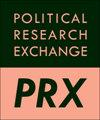Yelling from the sidelines? How German parties employ populist and crisis-related messages on Facebook
IF 1.8
Q2 POLITICAL SCIENCE
引用次数: 1
Abstract
ABSTRACT The possibilities of unfiltered communication in social media provide the perfect opportunity structure for spreading populist ideas. Generally, populist communication features an antagonistic worldview that blames elites for betraying the people and promises to reverse a ‘downward societal trend’ by bringing the people's ‘real’ interests back into politics. Although populist success is often attributed to crisis-induced dissatisfaction, research remains unclear on whether and how political actors foster such negative societal perceptions. Building on the German case, our paper accomplishes two things: It explores the use of populist social media communication and relates it to the exploitation of crisis-related messages among political parties. Conducting a manual content analysis of 3,500 Facebook posts by German parties and leading politicians, we find that the outsider parties AfD and the Left use and combine populist and crisis-related messages by far the most. Insider parties also spread crisis-related content to some extent. However, like the government parties, they are very reluctant to communicate in a populist way. By explaining the communicative output with their relative position in the party system, we deepen the understanding of parties’ social media behaviour. Overall, this study offers more in-depth insights into how politicians influence perceptions of the societal state.在场边大喊大叫?德国政党如何在Facebook上使用民粹主义和危机相关信息
社交媒体中未经过滤的交流的可能性为传播民粹主义思想提供了完美的机会结构。一般来说,民粹主义传播的特点是一种对立的世界观,指责精英背叛了人民,并承诺通过将人民的“真正”利益重新纳入政治来扭转“社会下行趋势”。虽然民粹主义的成功通常归因于危机引发的不满,但关于政治行为者是否以及如何助长这种负面的社会观念,研究仍不清楚。在德国案例的基础上,我们的论文完成了两件事:它探讨了民粹主义社交媒体传播的使用,并将其与政党之间危机相关信息的利用联系起来。我们对德国各政党和主要政界人士在Facebook上发布的3500条帖子进行了手工内容分析,发现到目前为止,外部政党德国新选择党和左翼使用和结合民粹主义和危机相关信息最多。内部人士也在一定程度上传播了与危机相关的内容。然而,就像政府政党一样,他们非常不愿意以民粹主义的方式进行沟通。通过解释交际输出与他们在政党系统中的相对地位,我们加深了对政党社会媒体行为的理解。总的来说,这项研究为政治家如何影响对社会状态的看法提供了更深入的见解。
本文章由计算机程序翻译,如有差异,请以英文原文为准。
求助全文
约1分钟内获得全文
求助全文

 求助内容:
求助内容: 应助结果提醒方式:
应助结果提醒方式:


